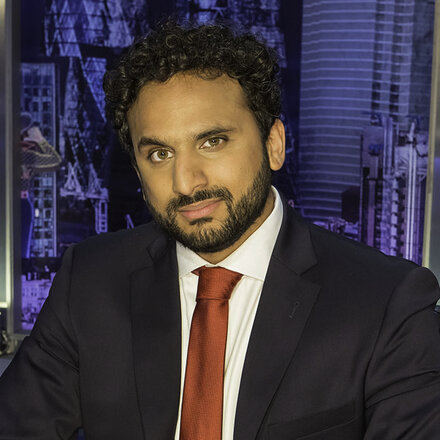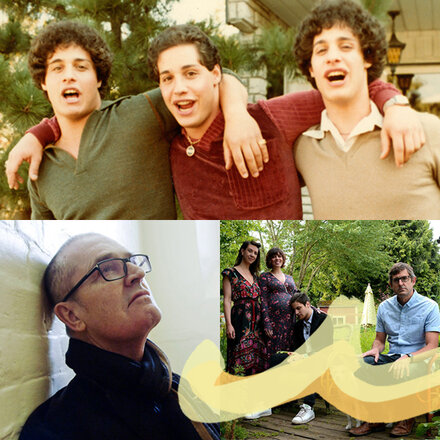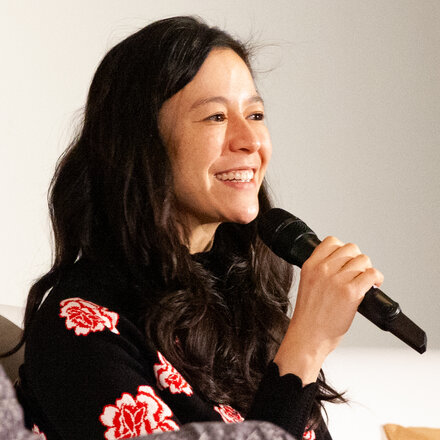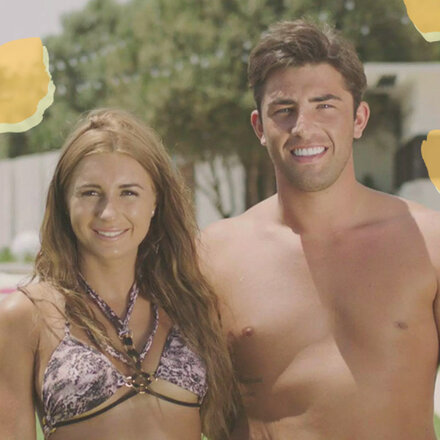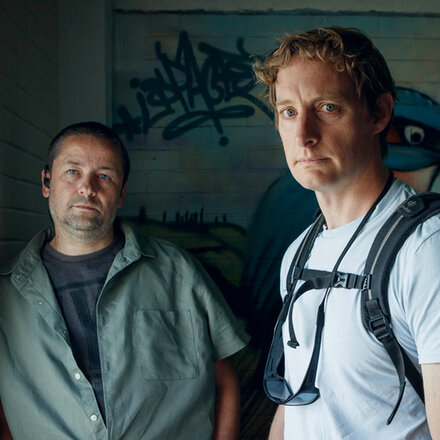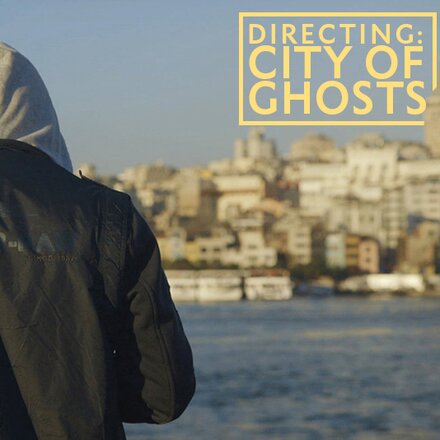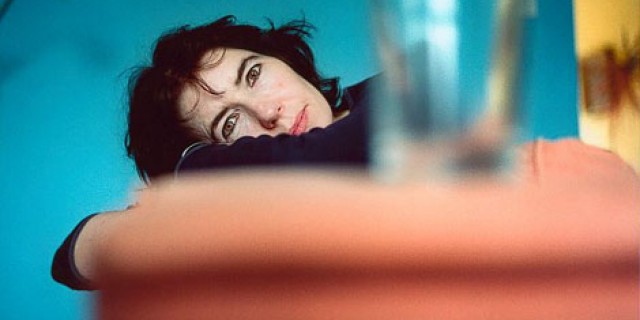
Kim Longinotto: Interview
Multi award-winning director Kim Longinotto has become known for her special brand of powerful observational documentaries.
Originally published in October 2007.
Words by Quentin Falk
Dubbed 'the invisible woman' by The Guardian because, unlike fellow documentary-makers such as Nick Broomfield and Michael Moore, she prefers to remain unheard and unseen behind the camera, Kim Longinotto has been making films for 30 years.
Studying at the National Film & Television School in the 70s, Longinotto made her debut with the controversial Pride Of Place, filmed at the girl’s public school where she’d once been an unhappy pupil. Her prize-winning subjects have spanned the globe - from Divorce - Iranian Style (for which she won a BAFTA with co-director Ziba Mir-Hosseini) and female circumcision in Kenya (The Day I Will Never Forget) to Shinjuku Boys and Gaea Girls in Japan. Hold Me Tight, Let Me Go, set in the remarkable Mulberry Bush school in Oxfordshire that deals with excluded and emotionally scarred children, was a rare excursion back on home soil. It won the Best British Feature at the BritDoc Festival in 2007.
Your films have regularly dealt with women trying to cope in difficult Third World environments. What drew you back to Britain and the subject of children for Hold Me Tight?
What’s so strange about it was, I didn’t mean to do it. Roger Graef, who’s a trustee of Mulberry Bush, kept phoning me and saying I should go to this school. It just seemed like nothing I wanted to do but he kept insisting. So I did. After about an hour, I thought ‘This school is amazing’. I was hooked. The first thing I noticed is that when kids did something quite violent or were very disturbed, the teachers would always try first to find out what the problem was. It was such a revelation.
Did it resonate with your own unhappy school days, which you had, of course, aired on film years earlier?
At my school, the teachers had so much power over the kids. You were never told that anything you did was good; in fact, you were always told what was bad. The result was that I came out of that place with very low self esteem. It was quite the opposite of the Mulberry Bush, where the teachers were really loving towards the kids. It’s what life should be like; that’s how we should be with our children.
How quickly did the film come together?
It was absolutely the worst thing for me at the time. I had another film planned, so I had to drop everything to do this. Roger and I first went to the school in May 2006. By the time I started filming in September, it was commissioned.
"Once you ask someone to do something again, you change your relationship with them for ever."
Why did you first settle on the medium of documentary?
Up to the time I went to the NFTS, things that had happened to me in my life were so much more amazing than anything I’d seen in fiction. I thought about the things that really mattered to me - the extraordinary people I’d met and the things I’d seen - and I realised I couldn’t dream them up.
Did you realise early on that you could connect with an audience?
After University, I did a summer job for Lewisham Council going round parks with a microphone and sound thing, telling stories to children. The kids seemed completely gripped, so that’s how I first really got the taste for telling stories and capturing an audience.
Why do you remain an ‘invisible’ presence in your films?
I’ve always wanted to try and get the audience to feel like where I am. After we showed Sisters In Law [about a couple of courageous legal eagles in Cameroon] at the Amsterdam Film festival, we went up on stage and there was polite applause. Then they shone a light on Vera and Beatrice - the two women in the film - and the whole audience stood up and cheered. It was so moving. I thought that’s how it should be: the people in the film are the film. I feel really comfortable about that.
How do you direct?
There’s usually just me and the sound recordist [often Mary Milton]. I never tell people to do or not to do anything. I think that if they are involved in something and it’s interesting, they aren’t going to look at me because they’re more interested in what’s actually going on.
Have you been tempted to be more directly involved as the film unfolds?
I’ve always said that if people want to talk to me, I will say something back so they feel they can get comfort from, or be buoyed up, by me. In Divorce - Iranian Style, a woman starts talking to the camera right in the middle of something. I like it being a bit messy like that. It’s telling you what’s really going on.
Do you ever try and re-create something for the camera?
I would never ever, ever recreate anything, particularly somewhere like the Mulberry Bush. There’d once been a promotional film made there which made them do things over and over again; as a result, some of the staff were very suspicious when I came along. Once you ask someone to do something again, you change your relationship with them for ever. I’d be embarrassed to. Whatever I can do at the time, I’m happy with.
Was it a battle to win their trust?
Yes. There were times I’d get really frustrated and be lying in bed thinking, ‘I can’t make this film. It’s impossible.’ Then I thought, ‘Why should they trust me?’ I told them there’s going to be no voice over, that nobody was going to be interpreting for them. I also produced a short DVD for them from the first part of the shoot dealing with one of the kids. After they had seen that, they seemed keen for me to film other children and accepted that I’d have to spend a long time there.
Do you shoot miles of footage?
On, say, Divorce - Iranian Style and Sisters In Law, we shot 13 hours, so that was 11 hours getting wasted. Hold Me Tight was 30 hours down to 99 mins. The whole beginning bit took up a lot more footage than expected. There were so many staff and because I wanted to follow various kids’ stories with different staff, it ended with staff I really got on with, so lots of other characters got lost on the way. I’m glad to have done that on video.
Isn’t the very process of editing, of selecting material for a watchable film, fraught with danger?
How I think of it is: I’m telling a story and nobody’s going to watch 30 hours.
You’re regularly credited with having a co-director why’s that?
The idea was always that if you were filming in another language and that person speaks the language, they’re often contributing a lot. So it only seemed fair.
What do you do between films?
It takes me quite a while to recover. I love teaching at the NFTS. It’s a kind of therapy for me. If I have a long time between films, then I’ll do camera work on other people’s documentaries. Some directors do actually say ‘Action!’ and get people to do things. It’s always interesting to see how other people do it.
What’s your stance on Reality TV?
I have to admit I absolutely loved Faking It. The whole feeling of it was wonderful, and also that they managed to fool the experts. I had a disbelief that was suspended. The ones I don’t like are where people are somehow put in situations just to behave badly.
Have you ever, like your old friend Nick Broomfield, wanted to dabble in fiction?
Sometimes I think it’d be so nice just to make up a lovely story. Then each time you’re actually making the film, you realise you can’t have scripted it. There’s a moment in Hold Me Tight when one little boy says: ‘I hate myself; I hate my life’. Could you script that, and if you did, would anyone believe that a kid of eight would actually say that?
Do awards actually help?
Yes, people value them. They really seem to get you a bit more independence, perhaps give you more elbow room.
You have been quoted as saying ‘I really hate making films’.
Each time I begin, I think the film is not going to be difficult. This last one has probably been the hardest I’ve ever had to do because of the problems with staff. I certainly found it the most upsetting to make because of it bringing back memories and comparisons with my own childhood.
What’s your next film?
It’s about an amazing group of women - Afrikaaners and Zulus - who rescue children in Durban. It’s nice to do films about what’s possible in Africa, about people involved in change, who are doing something positive.
Has the notion of documentary changed down the years?
What’s really changed, and what’s wonderful, is that people are really starting to think of docos being an emotional experience in their own right. It’s like one of the carers in my film telling a kid that ‘some child, somewhere else, who can’t come to a place like this will see this film and know they are not alone’. I loved him saying that. He was explaining the whole thing of what documentary film is.
This interview first appeared in the October 2007 issue of our members’ magazine, ACADEMY.

